#beth lewis
Text
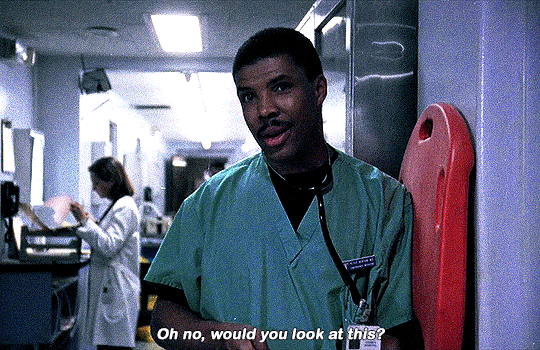
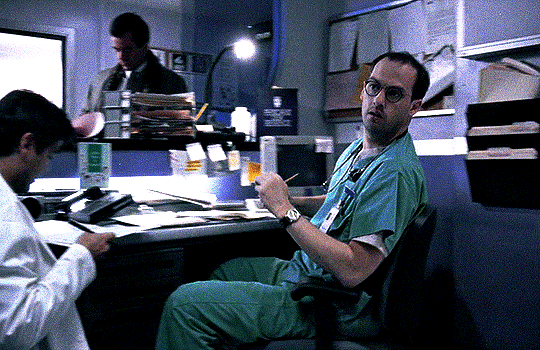

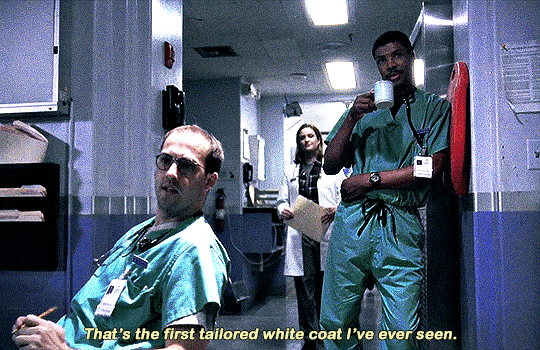
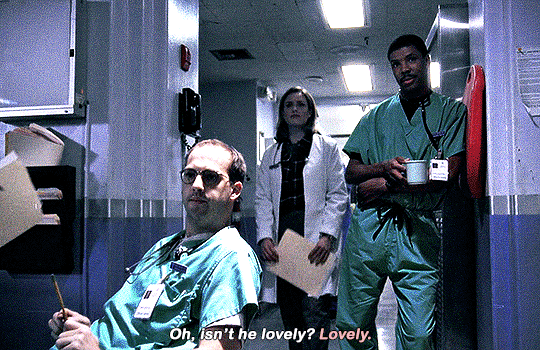
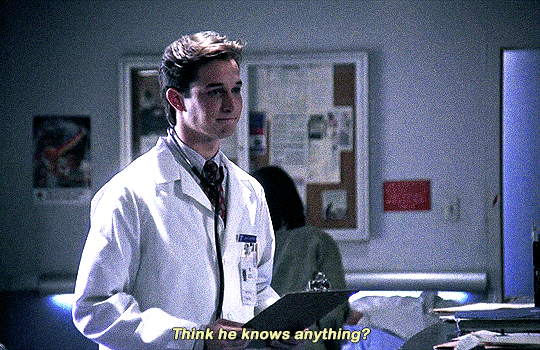
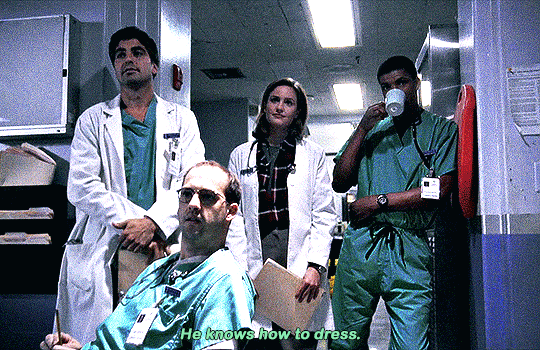

And the rest, as they say, is history.
ER (1994-2009)
1.01, “24 Hours”
#eredit#er nbc#john carter#mark greene#peter benton#susan lewis#doug ross#tvedit#tvarchive#televisiongifs#cinematv#dailytvfilmgifs#userbbelcher#chewieblog#usercassidy#tusermichi#tusersadie#userlolo#addys-beth#*#s1 my beloved
599 notes
·
View notes
Photo

H is for Happy Birthday Lewis 🥳
#lewis hamilton#lewis birthday edit!!#idk i think it's cute?? kindergarten vibes?? miss nadia's alphabet chart gather round kids#i wasn't gonna make anything this year but this came to me for some reason and I wanted to make something cheerful so here it is!#anyway. he lights up my life he cheers me up i hope this makes someone feel even a fraction of that#thank you jess and beth for the alphabet help and rina for the qc#and that's my contribution for the day?? Idk i might hate it in a couple of hours LMFAO#nadia's things#yoink#design things
585 notes
·
View notes
Text
youtube
Watch the American Climate Leadership Awards 2024 now: https://youtu.be/bWiW4Rp8vF0?feature=shared
The American Climate Leadership Awards 2024 broadcast recording is now available on ecoAmerica's YouTube channel for viewers to be inspired by active climate leaders. Watch to find out which finalist received the $50,000 grand prize! Hosted by Vanessa Hauc and featuring Bill McKibben and Katharine Hayhoe!
#ACLA24#ACLA24Leaders#youtube#youtube video#climate leaders#climate solutions#climate action#climate and environment#climate#climate change#climate and health#climate blog#climate justice#climate news#weather and climate#environmental news#environment#environmental awareness#environment and health#environmental#environmental issues#environmental justice#environment protection#environmental health#Youtube
7K notes
·
View notes
Text



22/07/23, Budapest - Lewis Hamilton and Max Verstappen after taking P1 and P2 respectively in qualifying for the 2023 Hungarian Grand Prix
📸 by Dan Istitene & ANP images
#TWO RECORD BREAKERS!!!#TOGETHER!#max verstappen#lewis hamilton#hungarian gp 2023#f1#formula 1#f1 edits#beth edits f1#max.jpg#lewis.jpg
108 notes
·
View notes
Text


When Mark Watney gets home, there sure is a lot of Tumblr nonsense to get caught up on.
(I just wanted to draw the crew being a friend group lol. And I think it'd be funny if Mark got to see a bunch of memes about him)
#if I mischaracterized any of them it's cuz I haven't read the book recently. my bad lol#Lewis doesn't know what Tumblr is and I stand by that. The rest of them have varying knowledge of Tumblr.#kinda hate how Vogel turned out in this but i couldn't figure out how to fix it#oh well ¯\_(ツ)_/¯#digital art#doodle#sketch#my art#the martian#mark watney#alex vogel#melissa lewis#rick martinez#beth johanssen#chris beck#andy weir#beepbeepart
192 notes
·
View notes
Text
if criminal minds was a family, my pov
disclaimer: this doesn't include every character from every season, but on the characters that I connected with and fit with my headcanons the most -- i.e., these aren't fact, just how i see it <3
also i.e., pls pls don't be mad if we have different headcanons
the basics:
aaron hotchner: father, single dad, can be strict but will always listen to and be there for his kids, doesn't smile very often but has the BEST, most contagious laugh
david rossi: cool, fun uncle, gave the kids their first sip of alcohol (only when they're 21 though), the more 'chill adult', a playboy, but finally married their aunt krystall who is their favorite
derek morgan-hotchner: oldest child & son, very protective of his siblings, a little bit of a playboy but does settle down, smart without trying
emily prentiss-hotchner: nicknames are em and ems, second oldest, oldest daughter, very smart (smarter than her little brother spencer sometimes) and the most emotionally intelligent of the siblings though this surprises most people because she's very rebellious and very private - opens up to people but with time
jennifer jareau-hotchner : nicknames are JJ and jaje, middle child, quiet and responsible, very popular athlete, surprisingly kind of a badass when her family or friends (especially her little brother and sister) are hurt
spencer reid-hotchner: nickname is spence, youngest son, penelope's twin, very smart with an IQ of 187 and very sensitive, sometimes gets bullied but always protected by older brother derek, a bit nerdy like his twin
penelope garcia-hotchner: nickname are pen, penny and garcie, youngest child and daughter, spencer's twin, a little bit loud and boisterous at times but also very sensitive and kind, great at computers and majored in comp-sci in college
tara lewis, matt simmons, luke alvez: triplets, but not related to the hotchners, though they have been family friends with them for years and are treated as family
luke: very popular, football player and jock but not a playboy at all, a little quiet and secretly a nerd, LOVES musicals and baking
tara: very smart, loves psychology and crime-thrillers, very funny and and a bit of a smart-alec, loves teasing her little brother luke
matt: nickname is matty, very mature, very kind and very responsible, also a football player with his brother, often breaks up the arguments between tara and luke when one or the other takes it too far
other details of the headcanon
aaron is currently dating beth who will hopefully be the family's step-mom soon (aaron has been planning to propose for a long time and the kids keep teasing their dad that it'll never happen)
though derek is a playboy all throughout high school, he eventually settles down with a smart girl on the pre-med track in college named savannah
derek often gets into fights with his dad, especially when he was younger, but that's happens less as he gets older and when he finds comfort in savannah
JJ's been dating her high-school sweetheart, Will, since freshman year, they've already started planning how many kids they want and their names (as it stands: 2 boys and a girl, henry, michael and maggie)
matt has also been dating kristy forever, since high-school and they both want a big family
emily, jj and tara are an unlikely trio of best friends; emily has only ever told the other two her biggest fear
derek, matt and luke are also best friends and often include spencer in their hang-outs
penelope and luke were very 'will they, won't they' for a long time because penelope often resisted luke's charm because she was afraid of getting hurt, but eventally start dating and are everyone's favorite couple
penelope dated a bunch of assholes before luke (kevin, shane, tyler) and is part of the reason why she was afraid to date luke -- luke is aware of this and does her best to treat her like a queen
spencer just started dating max but can see himself marrying this girl; max has helped him come out of his shell
spencer is the older twin by 5 minutes and often holds this over penelope's head
matt is the oldest triplet, then tara and then luke (who is the baby and treated as such by his siblings)
spencer and penelope are built-in best friends and watch doctor-who, marvel and star-trek marathons together -- max and luke join these when each couple starts dating
tara, luke and matt often see aaron/dave as parental figures and lean on them for support
they are all very protective of each other, but everyone is the most protective of penelope
tara and penelope call luke 'lukey' as a nickname to bug him, but he secretly loves it
the eight kids (penelope, luke, matt, tara, emily, jj, spencer, derek) don't have that much of an age gap between them so they are all very close, hang-out a lot and very much fit the found-family trope
dave and aaron take the kids (including matt, tara and luke) on a family trip every year -- 2024 is going to be a beach trip
Okay, I have a lot more, but these are some :) love to hear your thoughts on this
#criminal minds#aaron hotchner#david rossi#penelope garcia#luke alvez#derek morgan#emily prentiss#jennifer jareau#spencer reid#matt simmons#tara lewis#kristy simmons#max brenner#headcanons#family au#garvez#willifer#hotch and beth#derek and savannah#kristy and matt#spener and max#krystall and rossi
42 notes
·
View notes
Text
#doctor who#Broadchurch#timeless child vs child murder#Chris Chibnall#Chibnall era#Alec hardy#Ellie miller#Joe miller#Tom miller#Fred miller#mark Latimer#Beth Latimer#Chloe Latimer#Danny Latimer#hardy x miller#the thirteenth doctor#Yasmin khan#Ryan Sinclair#graham obrien#Dan Lewis#thasmin#David Tennant#jodie whittaker#Olivia Colman#mandip gill
13 notes
·
View notes
Text
Together? Together. Ch1
.・。.・゜✭・.・✫・��・。. .・。.・
⇨ 「pairing— mark watney x fem!reader」
⇨ 「a/n— more than a year later, i’m FINALLY writing something for my favorite nerd. p.s. i’m still upset that there’s not a lot of mark watney stuff on here」
⇨ 「warnings— none i think」
⇨ 「word count— 1.9k」
CHAPTER ONE: THE STORM

“All right, team, stay in sight of each other. Let’s make NASA proud today.”
“How’s it looking over there, Watney and L/n?”
“Well, you’ll be happy to hear that in Grid Section 14-28 the particles were predominantly coarse,” Mark explained to the team as him and Y/n crouched down with little clear sample containers in their hands.
“But in 29, they’re much finer and should be ideal for chem analysis,” Y/n added, not looking up from the red sandy ground.
“Wow. Did everybody hear that? Mark and Y/n just discovered dirt. Should we alert the media?” Martinez spoke over the channel sarcastically.
Mark rolled his eyes, “Sorry, what are you doing today Martinez? Making sure the MAV is still upright?” Y/n felt a small smile creep onto her face.
“I’d like you to know that visual inspection of the equipment is imperative to mission success. I also would like to report that the MAV is still upright,” Martinez replied smartly as the two botanists smiled.
“Thank you for your hard work, Martinez,” Y/n said in a joking matter. Mark chuckled as he continued to chip at the rock.
“Watney, L/n, you keep leaving you channel open which leads to Martinez responding, which leads to all of us listening, which leads to me being annoyed,” Commander Lewis spoke.
“Roger that. Martinez, the captain would like you to please shut your smart mouth,” Mark said. Y/n snorted loudly, looking over to her best friend who had a mischievous smirk on his face.
Beck, in the HAB studying samples, shook his head. “We’d prefer to use a different adjective to describe Martinez’s mouth.” Mark and Y/n started laughing with each other, making it hard to focus on their task.
“Did Beck just insult me?” Martinez spoke unbelievably.
Y/n stopped her laughs for a moment, “‘Doctor Beck.’ And yes.” She couldn’t help but send a smart reply right back at the man.
Johanssen, sat at her computer in the HAB alongside Beck, was tired of the four’s bickering. “Happy to turn the radios off from here, Commander. Just say the word.”
Mark stopped from what he was doing and looked back at Lewis, “Wait, Johanssen. Constant communication is the hallmark-“
“Shut ‘em off,” Lewis told Johanssen, interrupting Mark.
“No-“
“Wait!-“
Mark and Y/n tried to get them to stop, but they were interrupted by a small ringing noise, indicating that the radios were turned off. “I apologize for my countrymen, Vogel.” Lewis said as she walked past the two plant nerds.
“Accepted,” Vogel replied.
With a sigh, Y/n looked up at her Commander. “How many samples do we need, Commander?”
“Seven, 100 grams each,” she told the two, who nodded before getting back to work. Lewis walked a little bit away from them before crouching down to collect her own samples.
“Commander, you should come inside. You’re gonna want to see this,” Johanssen said over the radio, her voice slightly panicked.
“What is it?” She asked, continuing her task.
“A storm warning,” Johanssen said, making the astronauts stop their work. Mark and Y/n gave each other a wide-eyed look.
“I saw that in this morning’s briefing. We’ll be inside before it hits,” Commander spoke.
Johanssen continued, “Yeah, they upgraded their estimate. The storm’s gonna be a lot worse.” This caused Lewis to stand up and look around. The wind started to blow stronger, stirring up the sandy ground.
“Martinez, how does it look?” Lewis asked the man at the MAV.
“Not good,” he replied as he stared at the large dusty cloud, the sound of thunder beginning to fill their ears.
———
Not too long after Johanssen’s warning, the four astronauts stood in the HAB staring at a computer. “‘1,200 kilometers in diameter, bearing 24.41 degrees,’” Commander Lewis read off of the screen. Y/n and Mark stood side-by-side still in their suits, their helmets off.
“That’s tracking right towards us,” Beth Johanssen didn’t look away from the computer screen. Y/n’s gloved hand found Mark’s, squeezing it as tightly as she could. Mark gave her a small kiss on her forehead, silently telling her everything would be okay.
“‘Based on current escalation, estimated force of 8,600 newtons,’” Lewis continued to read off.
“What’s the abort force?” Mark asked.
“7,500,” Beck answered.
“Anything more than that and the MAV could tip,” Martinez said over the radio.
“Do we scrub?” Vogel asked the Commander.
She nodded, “Begin abort procedure.” Mark and Y/n look at the screens in disappointment.
“We are estimating with a margin of error. We could wait it out,” Y/n spoke up. Lewis looked over to the her and then the screen again with a sigh.
Mark nodded along with his best friend’s words, “Let’s wait it out.” Everyone looked over to him. “Let’s wait it out,” he repeated.
“Commander?” Beth asked the pondering woman standing over her.
“Prep emergency departure,” she said before walking off quickly.
“Commander,” the two botanists spoke in unison.
“We’re scrubbed. That’s an order,” Lewis told them both. Their shoulders slumped at the order. They didn’t want to go home yet! They still had much more to discover and experiment on! “Martinez, how long before take-off?”
“12 minutes,” the said man replied. The six astronauts in the HAB quickly got their gear back on—well, Mark and Y/n didn’t have to because they didn’t take theirs off, expecting to go back out to get more samples.
Once they got their suits back on, they rushed to exit the building. “Visibility is almost zero. Anyone gets lost, hone in on my suit’s telemetry. You ready?” Commander Lewis said, tapping on the screen by the locked door so they could open it.
“Ready!” Mark exclaimed from the back, Y/n right in front of him—which he insisted on. Then Lewis opened the door, black dust immediately filling the room as well as strong winds. The wind pushed them all back slightly.
“Commander, are you okay?!”
“I’m okay!” She replied back as they all began to fight the winds. Because Mark was the last one, he closed the door behind him before following the lights on his team’s helmets.
“Commander, we’re at 10 degrees, and the MAV is gonna rip at 12.3,” Martinez spoke with a panicked and quick voice.
“Hey! We might be able to keep the MAV from tipping,” Y/n yelled through the wind as she continued to walk.
“How?” Commander Lewis asked.
Mark seemed to catch her idea, so he spoke up for her, “Use the cables from the comms mast as guy-lines, anchor it with the Rover’s!” He exclaimed as something—Y/n couldn’t tell what—flew in their direction.
“Watch out!” Lewis exclaimed, but it was too late. The disk flew into Mark, taking him along with it as it flew through the winds.
“MARK!!” Y/n exclaimed as she stopped. The woman felt her heart drop down to the ground at the emptiness behind her.
“Watney!” Lewis yelled as well. “What happened?”
“He was hit!” Y/n exclaimed through the knot that was forming in her throat.
“Watney, report,” Beth panicked.
“No, no, no, no..” Y/n muttered to herself as she stopped walking completely.
“Before we lost telemetry, his decompression alarm went off,” Beck said.
“Where did you last see him?” Commander asked quickly.
Y/n shook her head, “I don’t know where he is!” She was panicking. Like on-the-brink-of-a-panic-attack panicking. Her best friend, her family, the only one she’s truly ever loved more than anyone in the world, gone.
“What are the vitals on his suit?”
“He’s offline,” Y/n looked down at the screen on the arm of her suit.
“A complete loss of signal on Watney.”
“Beck!” Vogel exclaimed, which the said man replied with a quick ‘yeah’. “How long can he survive decompression?”
“Less than a minute,” he responded. Y/n didn’t know what to do or say, she was still in shock of the whole thing.
Commander Lewis walked over to the rest of the team, “Line up, walk west.” And then they began walking. Y/n was determined to find her best friend, even if that meant she would be left all alone on the red planet. “He may be prone. We don’t wanna step over him.” Commander said as they used their lights to try and find Mark.
“Commander. We’re at 10.5 degrees. Tilting to 11 with a lll the gusts of wind,” Martinez warned the woman.
With a sigh of panic, Lewis stopped and turned back at her team. “Everyone, hone in on Martinez’s suit. It’ll get your to airlock. Get in, prep for launch.”
“What about you, Commander?” Vogel asked unsurely.
“I’m gonna search a little longer. Get moving!” She said, but everyone but Y/n hesitated. “Go!” The other started to move towards the MAV, but Lewis noticed a presence behind her. “L/n, go!”
“I’m not leaving without Mark! I couldn’t live with myself if I left him here,” she told her Commander.
With a sigh, Lewis nodded her head. Another set of eyes would be better to finding Mark. “Fine.” And so they started looking. Y/n tried to go the direction she last saw Mark, but she wasn’t finding anything. “Watney, report!”
“Mark!” The two yelled and searched around to see if the man would respond back, but nothing.
“The MAV’s at 11.6 degrees. One good gust and we’re tipping,” Martinez warned the two.
“If it tips, you launch,” Lewis told him, determined to find her lost crew mate.
“You really think I’m gonna leave you behind?” He asked his Commander.
“That’s an order, Martinez,” she commanded.
Y/n nodded, “Leave us if you have to.” She told him before continuing her search to find her best friend. “Mark! Can you hear me? Mark I swear if you don’t respond-“ She said but was cutoff by the sound of a large object headed her way.
“Martinez, what about the proximity radar? Could that detect Watney’s suit?” Lewis asked the man.
“It’s made to see the Hermes from orbit, not a little piece of metal from a single suit,” he told her, but Y/n wasn’t listening. She didn’t know what direction the large object was coming from, so she hoped that it would miss her.
“Give it a try,” she said.
“Roger.” He replied. A few seconds later he spoke up, “We’ve got negative contact on the proximity radar.”
“Nothing?!” Y/n exclaimed in sadness.
“No. I can barely see the HAB,” Martinez gave them the bad news.
“Commander, Y/n, I know you don’t wanna hear this, but Mark is dead,” Beck’s voice came through the radio. Those three words struck Y/n hard.
Mark is dead.
A sob escaped Y/n’s lips as she continued her search, but the large object was getting louder it seemed.
“Commander, Y/n, you need to get back to the ship, now!”
“13 degrees. If we pass balance, we’ll never rock back!” Vogel said, making Lewis stop.
“I’ve got one more trick left, and then I’m following orders, Commander,” Martinez spoke, but Y/n was partially listening. The object was getting closer, she could feel it.
“Commander! Y/n!” Beth exclaimed.
“On my way,” Lewis said as she started to make her way to the MAV. But what she didn’t notice was that she was walking back alone. “Y/n?” She asked the stopped girl.
“I can’t leave him,” she told her Commander.
“Y/n, I’m sorry but he’s gone. We have to leave. Now!” Lewis ordered her, but before she could say anything, the large object slammed right into Y/n, causing her to scream loudly. It felt like a solar panel? Y/n couldn’t tell as it pushed and dragged her away from her commander, away from the MAV. Away from her chance of getting home alive. It pushed onto her helmet hard, so hard that it knocked her head against it.
“Y/N!!” Was the last thing she heard before she blacked out.
#mark watney x reader#mark watney#the martian#mark#watney#the martian x reader#xreader#mark watney the martian#chris beck#beth johanssen#martinez#commander lewis#space#mars#the martian movie#matt damon#matt damon the martian
57 notes
·
View notes
Photo

Botanist and engineer Mark Watney - Ares III Mission Crew (2035)
The Martian (2015)
#2015#2035#film#movie#science fiction#The Martian#Ridley Scott#Matt Damon#Mark Watney#Jessica Chastain#CDR Melissa Lewis#Aksel Hennie#Alex Vogel#Sebastian Stan#Dr. Christopher Beck#Kate Mara#Beth Johanssen#Michael Pena#Rick Martinez#Mars#Ares III#NASA
172 notes
·
View notes
Photo
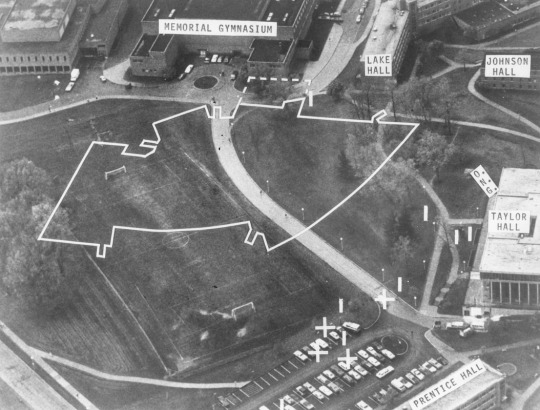
Kent State University, Kent, OH, May 4, 1970 / 2023
Allison Beth Krause (April 23, 1951 – May 4, 1970), student
Jeffrey Glenn Miller (March 28, 1950 – May 4, 1970), student
Sandra Lee Scheuer (August 11, 1949 – May 4, 1970), student
William Knox Schroeder (July 20, 1950 – May 4, 1970), student
Nine students wounded: Alan Michael Canfora, John R. Cleary, Thomas Mark Grace, Dean R. Kahler, Joseph Lewis Jr., Donald Scott Mackenzie, James Dennis Russell, Robert Follis Stamps, Douglas Alan Wrentmore
(Bibl.: The Truth About Kent State. A Challenge to the American Conscience, by Peter Davies and the Board of Church and Society of the United Methodist Church, Farrar, Straus and Giroux, New York, NY, 1973. Plus: The Kent State Shootings. An Annotated Bibliography, by William A. Gordon)
#photography#map#allison beth krause#allison krause#jeffrey glenn miller#jeffrey miller#sandra lee scheuer#sandra scheuer#william knox schroeder#william schroeder#alan michael canfora#alan canfora#john cleary#thomas mark grace#thomas grace#dean kahler#joseph lewis#donald scott mackenzie#james dennis russell#james russell#robert follis stamps#robert stamps#douglas alan wrentmore#douglas wrentmore#peter davies#william a. gordon#william gordon#farrar straus and giroux#1970s#2020s
24 notes
·
View notes
Text
you really have to consider that actually raphael turned simon into a vampire <3 (youtube)
44 notes
·
View notes
Photo
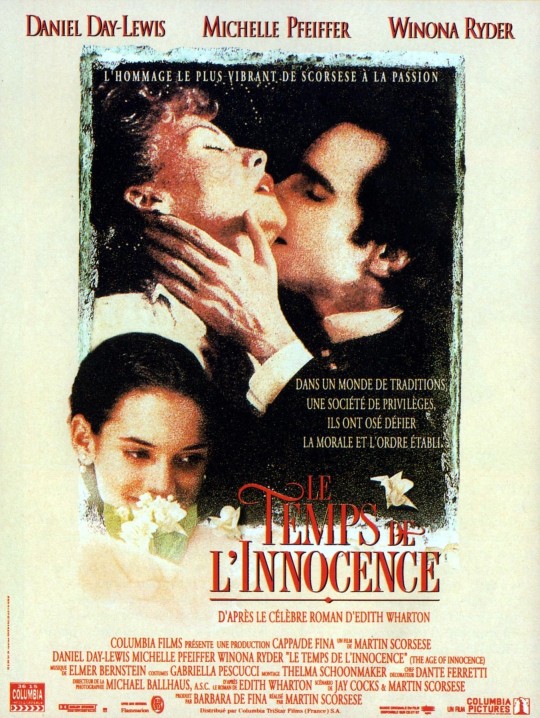

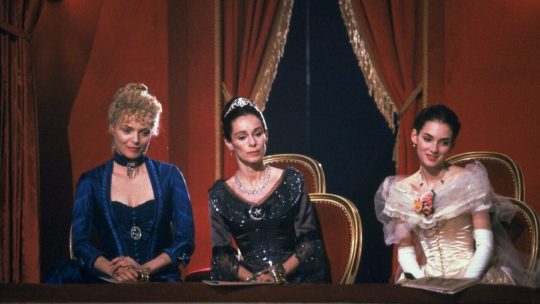

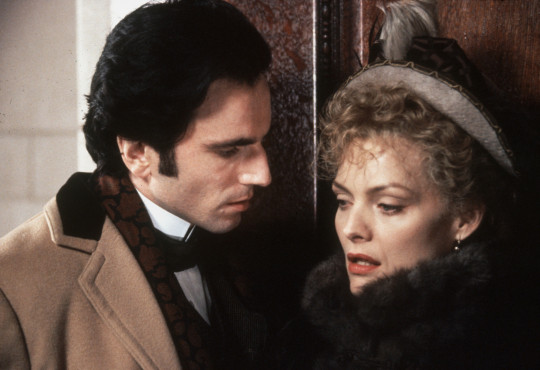





The Age of Innocence (1993) Martin Scorsese
June 4th 2023
#the age of innocence#1993#martin scorsese#daniel day-lewis#michelle pfeiffer#winona ryder#miriam margolyes#joanne woodward#richard e. grant#alec mccowen#geraldine chaplin#stuart wilson#sian phillips#carolyn farina#michael gough#alexis smith#norman lloyd#jonathan pryce#mary beth hurt
11 notes
·
View notes
Text
“Genius is no guarantee of wisdom,” says government official Lewis Strauss (Robert Downey Jr.) in Christopher Nolan’s Oppenheimer. It could be the blockbuster’s banner statement. Since the release of Nolan’s thrilling, bombastic film, the culture has been caught in the firestorm about how to explain the personality of the eloquent, esoteric J. Robert Oppenheimer and his creation of the first and only people-destroying atomic weapon to be used against civilians. Where Hollywood traffics in Oppenheimer’s ambiguity as a historical character, two small but potent nonfiction forebears ask a more pointed question: what is the responsibility of scientists to their societies?
The Day After Trinity (1981) and The Strangest Dream (2008) evacuate the mythical tropes of the tortured genius biopic that Hollywood loves to rehearse in films like The Imitation Game, Hawking, and A Beautiful Mind. Now enjoying a renaissance, the films are neither unforgiving nor hardline, but offer sharper moral clarity to the Oppenheimer dilemma, presenting a more complex (and condemning) portrait of the father of the atomic bomb: a patriot, philosopher-king, skilled public administrator, scientific collaborator with military and government, emotional naif, egotist, and polyglot.
Nolan’s story arcs towards Oppenheimer losing his naivete upon realizing that he has given humanity the power to destroy itself. Designed to wrap around each filmgoer’s own worldview and politics, the film is as politically open-ended as you might expect from a major blockbuster. In his press tour, Nolan articulated a more explicitly conservative stance that chimes both with the Great Man theory of history (another biopic favorite) and the Cold War military doctrine that justified the development and use of atomic arsenals against civilians.
“Is there a parallel universe in which it wasn’t him, but it was somebody else and that would’ve happened?” Nolan said in the New York Times. “Quite possibly. That’s the argument for diminishing his importance in history. But that’s an assumption that history is made simply by movements of society and not by individuals. It’s a very philosophical debate…. he’s still the most important man because the bomb would’ve stopped war forever. We haven’t had a world war since 1945 based on the threat of mutual assured destruction.”
That’s also the idea behind the official policy of the nuclear superpowers: deterrence. Horror, in other words, was necessary to prevent even greater horror. The very same doublethink led to Harry Truman’s honorary degree, conferred for ending the war.
How reluctant was Oppie? In Jon Else’s The Day After Trinity, a documentary originally made for public television in 1980, Oppenheimer’s collaborators deliver ambivalent, guilty testimony to a static, non-judgmental camera. Screening on the Criterion Channel, Else’s doc points to the great pleasure its subject took in being appointed the leader of the grandiose bomb project, with the cosmic job title of “Coordinator of Rapid Rupture.” The lens pans patiently across grainy, grayscale photographs that have the natural air of science fiction; the film feels more of a piece with Chris Marker’s La Jetee (1962) than a typical historical documentary. After all, Oppenheimer was not just the enabler of the weapons that could annihilate us all, but of the high-stakes hallmarks of modern spectacle itself. The awe-inspiring images of mushroom clouds over Trinity, Hiroshima, and Nagasaki are now instantly recognizable in the core visual grammar of contemporary entertainment and media. It’s hard to imagine an idea better suited to Nolan’s exalted, maximalist esthetic and his stories of obsessive male protagonists pressurized within towering patriarchal systems of power.
Oppenheimer positions the atomic bomb as the creation of a brilliant, creative personality. But The Day After Trinity revels in the administrative scale of the Los Alamos project necessary to make a mechanism to trigger, in a millionth of a second, a violent chain reaction with a flare brighter than a hundred suns. A walled city of six thousand staff, at a cost of $56 million. Seven scientific divisions: theoretical physics, experimental physics, ordinance, explosives, bomb physics, chemistry, and metallurgy. All of America’s industrial might and scientific innovation connected in this secret lab with its billions of dollars of military investment.
“Somehow Oppenheimer put this thing together. He was the conductor of this orchestra. Somehow he created this fantastic esprit. It was just the most marvelous time of their lives,” says Freeman Dyson, a rather eccentric theoretical physicist who became Oppie’s colleague at the Institute for Advanced Study in Princeton. “That was the time when the big change in his life occurred. It must have been during that time that the dream somehow got hold of him, of really producing a nuclear weapon.”
In this vision of the A-bomb narrative, Dyson posits that Oppie’s aims switched from finding out “the deep secrets of nature” to producing “a mechanism that works. It was a different problem, and he completely changed to fit the new role.” We begin to see more clearly a portrait of an outsider with a wild desire to be at the center. All the work the whiz kids were doing over the years was always designed to contribute to the war. (All the films remove Oppie’s more demonstrably radical tendencies, his belief in a world government, for instance, which he mentioned offhandedly in the New York Review of Books in 1966.)
The closest we get to Oppenheimer himself is his pale-eyed, doppelganger brother, Frank, who gives the impression of a visionary living in a purely abstract realm. He stammers a little when he speaks of the moment when he and Oppie heard on the radio of their great bomb in action. “Thank God it wasn’t a dud… thank God it worked… Up to then, I don’t think we’d really, I’d really, thought about all those flattened people.” He still seems stunned. If nothing else, Frank gives weight to the storytelling trope of scientists as hyperintelligent but flakey space cadets at a remove from the humanity of it all. “Treating humans as matter,” as Los Alamos collaborator Hans Bethe puts it appallingly. Another contributing scientist says he vomited and lay down in depression. “I remember being just ill,” he says. “Just sick.”
The doc swirls with clips accumulated from Los Alamos Scientific Laboratories, National Atomic Museum, American Institute of Physics, and Fox and NBC newsreels, while Paul Free’s authoritative narration hovers like an omniscient voice from the depths of the Cold War itself. Then, there is Oppie: a figure of stricken elegance in his rakish pork pie hat. Typical of documentaries constructed in a postmodern style, what it all means is never explicated. Ambiguity presides over clarity.
Most directive is Dyson’s testimony. “He made this alliance with the United States Army and the person of General Groves who gave him undreamed-of resources, huge armies of people, and as much money as he could possibly spend in order to do physics on the grand scale,” Dyson says with his flashlight perceptiveness. “We are still living with it. Once you sell your soul to the devil, there’s no going back on it.” Los Alamos, in this counternarrative, was not just an ivory tower but an irresistible paradise for genius-level scientists simply interested in new discoveries and mega-gadgets.
Dyson is a dubious fellow to emerge as the truthteller, given the inconsistency of his own legacy. His unorthodox theories are worthy of their own Nolan-esque treatment. He advocated growing genetically modified trees on comets, so that they might land on other planets and create human-supporting atmospheres, and eventually became a climate change denier based on his distrust of mathematical models. But his intelligence is irrefutable, and his distance from the Manhattan Project gives him a guiltless perspective and authority absent in Oppie’s other colleagues. Dyson, a greater antagonist than can be found in any mere Marvel movie, diagnoses Oppie as the self-induced victim of a “Faustian bargain.”
“Why did the bomb get dropped?” Dyson asks, his tie a little too big, his combover a little too combed over. “It was almost inevitable. Simply because all the bureaucratic apparatus existed at that time to do it. The Air Force was ready and waiting… The whole machinery was ready.”
Dyson also refutes the refrain of Oppenheimer’s responsibility for the catastrophe. “It was no one’s fault that the bomb was dropped. As usual, the reason it was dropped was that nobody had the courage or the foresight to say no.” Dyson pauses to let this sink in, then looks down and wobbles his head tragically. “Certainly not Oppenheimer. Oppenheimer gave his consent in a certain sense. He was on a committee that advised the Secretary of War, and that committee did not take any kind of a stand against dropping the bomb.” This measured oral history is fatal to the view of Oppie as a gentle humanist.
Dorothy McKibben, who ran the Manhattan Project’s office, chimes in with crystal clarity: “I don’t think they would have developed that [bomb] to show at a garden party. I think they were going to do it.” In archival footage, General Leslie Groves plays the role of plainspoken pragmatist: “It would have come out, sooner or later, at a Congressional hearing, if nowhere else, just when we could’ve dropped the bomb if we didn’t use it. And then knowing American politics, you know as well as I do, if there had been an election fought on the basis of every mother whose son was killed after such-and-such a date, the blood is on the hands of the President.”
Through these testimonies, the convention of the conflicted scientist and the myth of an A-bomb created in self-defense give way to a mantra of winning the war, and winning quickly. Valuing American lives over other lives. Avoiding a bloody invasion of the Japanese mainland. Months before Hiroshima, orders had been given to leave several Japanese cities untouched, to provide virgin targets where the impact of the new bomb could be clearly seen. Afterwards, a scientific team from the US was sent to Japan to study the effects. Footage rolls, in The Day After Trinity, of news clips of hospitalized burn victims.
In films on the Manhattan Project, questions of conscience are commonly seen through the assenting viewpoint—that of the scientists who continued to work on the bomb, even after Hitler’s defeat. One essential perspective is obscured, black-holed in subterfuge, even. Physicist and European refugee Joseph Rotblat made crucial discoveries in the fission process, and went on to specialize in nuclear fallout. He moved to Los Alamos in 1944 but defected from the project on grounds of conscience upon learning that the Nazis could not build such a bomb. He was the only scientist to turn his back.
“If my work is going to be applied, I would like myself to decide how it is applied,” Rotblat says in the 2008 Canadian documentary The Strangest Dream. Streaming on the National Film Board of Canada’s platform, the film traces his renunciation of A-bomb development and his role in the Pugwash Conferences, where scientists and statesmen gathered to discuss the reversal of nuclear proliferation. The film renders a fairly straight treatment of its quiet subject, with the visually rich backing of a vertiginous collage of disparate forms, including spooky Cold-War era footage and clips of the Trinity mushroom cloud. Oppie is not in the film, but the narrative takes place in the fissures he helped wrench open; he lurks like an ever-present ghost behind the character of Rotblat, who stands as his angelic nemesis as he tries to transform physics into a humanitarian project. Like Oppenheimer, Rotblat was also accused of espionage, but he was eventually awarded a Nobel Peace Prize for his contributions to the disarmament campaign.
Notably, Rotblat is entirely absent from Oppenheimer, despite being described as a brilliantly offbeat individual—a “mad Polish scientist”—by a former student in The Strangest Dream. It’s a curious historical erasure and a missed chance for a dramatic clash. Then again, perhaps Rotblat is too steady and untragic, incorruptible and unmemeable for his own big moment, let alone the blockbuster treatment. Oppie’s genius wasn’t just in his Faustian bargain but in the way that he spoke and the way he held himself, quoting Hindu philosophy and smoking till the end of time. I suppose film culture is more interested in the flawed, tortured luminary than the staunch, principled dissenter or the morally engaged scientist.
Prosecuting the melancholic drama of the ingenuous mastermind requires substantial historical selectivity. Most cinema narratives hew to the oft-cited rationale for the A-bomb’s development: its function as a deterrent to a Nazi explosive. But in his essay “Leaving the Bomb Project,” Rotblat wrote, “Groves said that, of course, the real purpose in making the bomb was to subdue the Soviets… Until then I had thought that our work was to prevent a Nazi victory, and now I was told that the weapon we were preparing was intended for use against the people who were making extreme sacrifices for that very aim.” With more than a dash of elegiac melancholy, the working thesis of The Strangest Dream is that Rotblat’s moral strength insulated him against Oppie-style tragedy.
Insofar as the The Strangest Dream and The Day After Trinity position the Manhattan Project as an unholy alliance of physics and the openly violent arm of the state, they do so via the absent presence of Oppenheimer, who, flush with government cash, personifies the uneasy collision of science and military. Today’s ventures in AI offer the same science-ethics conundrum, and we don’t seem to be any closer to resolving it than at the moment of Oppenheimer’s mythic quandary. Looking at the images of the Los Alamos exertions, you can almost faintly hear the words of today’s STEM bros: disruption, innovation, brilliance. Wondrous and diabolical, the A-bomb is presented in these documentaries as the freakish outcome of public-bureaucratic entrepreneurialism. (They are weaker on the tangled history of superpower competition and atomic technology.) It all depends, of course, on what humans do with the technology we develop.
Given what we know about capitalist society at present, things aren’t exactly looking up. Just a decade after The Day After Trinity, the Cold War victory lap was being run at the box office. A new, end-of-history generation of studio filmmakers was writing a euphoric, Fukuyama-esque version of reality into pop-culture lore: in blockbusters like Independence Day (1996), The Core (2003), and Armageddon (1998), American pluck saves humanity from wholesale destruction; anxiety surrounding US dominance over the international order is undetectable, and the US military is either prominent or necessary. Before them all, The Day After Trinity suggested that technology’s triumph is the very crux of the problem.
Today, Oppenheimer reifies a political crisis—superpower competition for atomic arsenal—as a conundrum of personality, tech, and naive genius, even as it centers the wild fraternity of science, military, and government vital to create the A-bomb. But the political arrangement of power and resources seems like more of an objective, inevitable fact about the world in The Day After Trinity and The Strangest Dream. If there’s such a thing as sober, mournful spectacle, these films manifest it.
Oppenheimer is long gone, but his legacy—the capacity of a self-destroying humanity, and the late-capitalist spectacle of that mushroom cloud’s bright flash of light—lingers. He did not sign the Einstein-Russell Manifesto against nuclear war. He never apologized for his role in bringing the bomb to life. Atomic technology is now standard. The world’s nuclear powers currently possess an estimated 12,512 active warheads. More than enough to wipe out the planet.'
#Oppenheimer#The Day After Trinity#Frank Oppenheimer#The Strangest Dream#Einstein-Russell Manifesto#Christopher Nolan#Lewis Strauss#Robert Downey Jr.#The Imitation Game#A Beautiful Mind#Jon Else#Los Alamos#Freeman Dyson#Hans Bethe#Institute for Advanced Study#Princeton#Leslie Groves#The Manhattan Project#Dorothy McKibben#Joseph Rotblat#The Core#Independence Day#Armageddon
4 notes
·
View notes
Photo




The most beautiful flower in Kensington Gardens
#lewis hamilton#did these need to be this big? yes fuck you#the lighting changed halfway through this video and i was like ?#sometimes natural lighting is evil#nadia's things#beth said it was okay for me to make these instead of run my errands...
401 notes
·
View notes
Text


20/07/23, Budapest - Lewis Hamilton enters the paddock on media day
📸 by Francois Nel
#this fit is sooo fucking cool#lewis hamilton#hungarian gp 2023#f1#formula 1#f1 edits#f1 fashion#beth edits f1#lewis.jpg
95 notes
·
View notes
Text


I love imagining how characters might draw themselves, so here’s the whole Crew from the Martian :o)
Didn’t occur to me to label the characters, so it might not be clear if u haven’t seen my designs before lol. In order from left to right, the characters are Watney, Vogel, Martinez, Lewis, Beck, and Johanssen.
#beepbeepart#the martian#andy weir#digital art#my art#sketch#doodle#digital sketch#mark watney#alex vogel#rick martinez#melissa lewis#chris beck#beth johanssen
24 notes
·
View notes
Text
“That’s like a billion dollars in Indiana.” That quip from Bobby Axelrod is one of the memorable lines in the series finale of “Billions,” the Showtime drama series that wrapped its seven-season run Oct. 27 with the crowd-pleasing episode “Admirals Fund.”
Axelrod, played by Damian Lewis, delivers that line as he takes a victory lap after demolishing his latest foil, rival hedge fund manager Mike Prince (Corey Stoll). It’s a reference to that fact that Prince, after an elaborate sting pulled off by Axelrod and the core “Billions” ensemble, is left wiped out but for $100 million he invested with Black-owned banks a few years ago. Axe’s comment and Prince’s broad smile suggest that the latter is headed to the Midwest to nurse his wounds and rise anew.
The line about Indiana had been on a white board in the “Billions” writers room for more than two seasons, just waiting for the right moment to land a punch, according to co-showrunner and executive producer Beth Schacter. Schacter and series creators Brian Koppelman and David Levien offered insights into the crafting of the finale and the fate of key characters during a Q&A held Oct. 23 at 92Y in New York that included a sneak peek screening of the finale.
“We knew that was where we were driving to and it never came off the board — and that never happens,” Schacter told moderator Cynthia Littleton, co-editor in chief of Variety. “And so I think it’s just fun to see that all coalescing” in the final episode.
Season 7 was designed to provide payoffs and fist-pumping moments for the die-hard fans of the series that revolved around the antics of hedge fund managers and the regulators who try to rein in their excesses. That sector of the financial universe has only grown its influence on the macro economy as well as in pop culture since “Billions” bowed in January 2016.
“We made a decision early on that we were going to make this season of the show for true ‘Billions’ fans – for the people who watch each episode more than once, who catch our references, who notice every song,” Koppelman said. “We wanted to make the final season that we wanted to see as ‘Billions’ obsessives. Seeing you all get the little lines and jokes and the moments and feeling the emotional resonances is incredibly satisfying.”
Getting the show to the finish line was complicated by the writers strike that extended nearly five months. The script for the final episode was completed before scribes went pencils down on May 2. But none of the three showrunners on stage were able to be on set while the final episodes were lensed.
“It was horrible because, you know, we did seven seasons over the course of eight years. We had to take an entire year off during the pandemic. And then to have to stop short and not get to be there for the final lap was really tough,” Levien said.
The trio found great comfort in the fact that the finale, penned by Koppelman and Levien, was directed by Neil Burger, who helmed the pilot and one other episode, from Season 2. “Neil knew exactly the right tone of the show, so it worked out great,” Levien said.
Koppelman observed, “Sometimes a worthy fight calls for a great sacrifice and ours was a small one compared to the ones that crews and so many other people had to make.”
The ongoing SAG-AFTRA strike has added to the challenge of promoting the finale given that stars Lews, Paul Giamatti (Chuck Rhoades), Maggie Siff (Wendy Rhoades), David Costabile (Mike “Wags” Wagner), Asia Kate Dillon (Taylor Mason) and more were unable to talk up their work.
The showrunners noted that they always made an effort to tap into any unexpected skills that each actor brought to the show. Lewis, for one, is a strong tennis player, so of course they worked that into an episode where he plays against Maria Sharapova. Toby Leonard Moore, the Australian actor who played the disgraced (but ultimately redeemed) former federal prosecutor Brian Connerty, once worked as an teppanyaki chef – a role that figured prominently into the finale episode.
“When you make a long-running show, you learn a lot of stuff about people and their personal lives, like Dola Rashad is fluent in Italian, so she had to speak Italian at some point,” Levien said. “Toby Leonard Moore made the mistake of telling us that he worked his way through school once as a teppanyaki chef. And we did not forget that — we carried that around for years.” Added Koppelman, “You have never seen a human being care more about the way a shrimp was cut than [Moore] did. He obsessed over the rehearsals with the hibachi.”
The specific storyline for the final season – how Axe was brought back to the U.S. from exile in London and the climactic sting against Prince – came together mostly during Season 6, Levien said.
Lewis left the series after the close of Season 5 as his wife, actor Helen McCrory, suffered through a long illness before her death in April 2021. When Lewis let them know he was ready to return for Season 7, that set the plot in motion.
“Damian told us before anyone else knew what was going on [with McCrory]. And we knew we were able to say to him, of course and we will bring stuff forward and we will make it all work for season five,” Koppelman said. “But then the three of us and teams of writers sat around and figured out OK, these two seasons — six and seven — what’s the ideal way that it can go? And the fact that we ended up getting to do it in the ideal way that Showtime supported shooting in England, each piece of that was able to work.”
One of the long-running subplots on “Billions” was the will-they-or-won’t-they question of the relationship between Axe and Wendy Rhoades, the brilliant psychologist who was the in-house coach for the alpha traders at Axe Capital (and later Michael Prince Capital). The characters have an incredibly deep relationship – one that confounds their own spouses – but they are not in a sexual relationship.
Schacter argued that the two are deeply in love.
“It’s not platonic. It’s incredibly romantic. They just don’t kiss,” Schacter said. “The secret sauce of the two of them is that they are truly connected in their souls. It’s just not sexual. They do have a certain type of love affair.” She noted that even some writers on the show mistakenly thought that Axe and Wendy had been in a physical relationship at some point.
“Writers pitched it to us all the time. But we felt from the beginning that we had decided it wasn’t going to happen, because then how do you keep the show going,” Koppelman said. “It also felt like they each understood what it was about. They understood that it made them better. They didn’t want to give in to that, it’s part of Wendy’s strength.”
Other highlights from the hourlong conversation:
Dan Soder, who played trader Dudley Mafee, was one of three finalists for the Connerty role that went to Moore. Soder at the time was still working restaurant jobs. Koppelman and Levien vowed to write a role for him that would debut after the pilot – assuming the show was picked up. “We wrote two lines for Mafee in the second episode and Dan came in and destroyed them and then he was off and running,” Koppelman said.
The only other role that was specifically written for an actor was the supporting character of Rian, the mouthy Axe Capital trader played by Eva Victor. Victor was also one of very few actors allowed to improvise on the show.
No series has ever showcased as many New York eateries – posh and popular – as “Billions.” It was a decision that came early on in the series as so much of business happens over drinks and food. “The restaurant placement in the show was organic because we recognized that what restaurants you could get into and what table you could get was a sign of your power and your access in New York,” Levien said. “And then if you go one step further into the billionaire realm, you could buy out a restaurant.” Schacter added that the actors usually enjoyed the dining scenes, particularly Costabile. “There is no greater on-screen eater than Mr. David Costabile,” she said.
Other than the core stars Lewis, Giamatti and Siff, the only other actor to have a line in all 84 episodes of the series was Daniel K. Isaac, who played trader Ben Kim.
“Billions” was also known for its deft use of music to help propel the storylines. Led Zeppelin proved to be one of the hardest bands to license, but they made it happen with “In the Evening” for a Season 4 episode. Koppelman noted that every season has included one Bob Dylan song, including “Blind Willie McTell” from Episode 8 of Season 7.
The showrunners gave a final nod to the former Showtime executives who greenlighted and supported “Billions”: David Nevins and Amy Israel (who have reunited at Peter Chernin’s North Road Co.) and Gary Levine. The pioneering pay TV outlet has undergone quite a bit of change during the course of “Billions” (it’s now been merged with streamer Paramount+) but the showrunners never felt abandoned. “Showtime has been incredibly supportive the entire time of this show,” Koppelman said.
#rest assured i am watching the full video and will share anything worth sharing that wasn't transcribed in this article#also really funny that the first sentence is a quote of beth schacter *mis*quoting a line from the finale#also also: still wrong about dki having a line in every episode. go rewatch 2x06 indian four real quick#to say nothing of damian lewis OBVIOUSLY not being in all the episodes. nor was maggie siff. giamatti stands alone#billions#brian koppelman#david levien#beth schacter#mike prince#damian lewis#toby leonard moore#bobby axelrod#wendy rhoades#dan soder#dudley mafee#eva victor#rian billions#david costabile#daniel k isaac#ben kim#soundtrack posting
6 notes
·
View notes